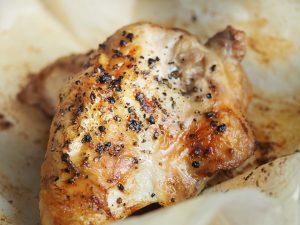Your Metabolism
What is Metabolism?
You often hear the word metabolism tossed around, (usually following the word sluggish.) as in “I gain weight easily because I have a sluggish metabolism. ”
But exactly what does that mean?
Well technically “metabolism” is the sum total of all the chemical process it takes for each living organism to maintain life. So even the flowers in your garden have a metabolism. In the human body chemical process take the oxygen and nutrients we consume and use them to fuel everything we do.
Our body’s are amazing. Thanks to the biochemistry of metabolism it has the capacity to maintain life, grow, and even restore health.
Metabolism Encompasses all body processes including how individual cells in your body:
- Allow activities you do control (such as physical activity etc.).
- Control processes that happen without conscious thought (e.g. digestion, circulation, breathing, cell renewal etc. ).
- Utilize energy
Is it any wonder that your metabolism may vary in efficiency from one person to the next?.
This is where your ‘metabolic rate’ comes into play.
Metabolic rate
This is the speed at which your metabolism works and is measured in calories (yup, those calories!).

The calories we eat have the potential of being used in one of three ways
- Exercise and other physical activity.
- Maintaining all those ‘involuntary’ functions.
- Storage, in the case of excess calories they get deposited as fat
So the more calories your body burns for those involuntary processes as well as during physical activity the fewer calories there will be left for the body to store, and the easier it will be to lose weight and keep it off.
There are several different ‘parts’ to our metabolism.
There’s the Basal Metabolic Rate ( the BMR). This is how much energy our body needs just to maintain chemical and involuntary functions.
There is Non-exercise Activity Thermogenesis ( NEAT) This is all movement outside of actual physical exercise.
Another is Thermic Effect of Food (TEF) how many calories the body uses to digest the food we eat.
And of course, there are the calories used to fuel our workout sessions
All together these make up our “Total Daily Energy Expenditure” (TDEE) the sum total of the calories we burn during a 24 hour period
What can influence your metabolic rate?
In a nutshell: a lot!
One thing you may know of is your thyroid. The thyroid gland is a major player in regulating your metabolism. This gland is responsible for releasing hormones that speed up your metabolism. An underactive thyroid can cause weight gain, as well as fatigue and increased sensitivity to cold etc. But the more thyroid hormone there is the faster your metabolism will be and the more calories you’ll burn.
But it’s not just the thyroid that can affect your metabolic rate.
Aerobic exercise can temporarily increase your metabolic rate. While you are moving your muscles are using fuel (e.g. calories).
Your size counts as well!
Bigger people have faster metabolic rates, and smaller people naturally have slower metabolic rates, but within that, your body composition plays a big role.
As you may know, muscles use more energy than fat. Muscles are like little furnaces constantly burning calories all day even when you are not exercising. Consequently, the more muscle you have the more energy your body will burn and the faster your metabolic rate will be. Even when you are at rest.
This is exactly why resistance training is recommended for fat loss. Muscles are your secret weapon for fighting the fat.
The Thermic Effect of Food is the calories your body uses to absorb, digest and metabolize your food. And the type of food you eat affects your metabolism.
While some foods are very quickly metabolized, others are much slower and therefore require many more calories to process. So understanding which foods take longer to metabolize can give you an edge when it comes to choosing wisely.
Of the three food groups, Protein uses the most calories to metabolize. Eat 100 calories in protein and your body will burn up to 30 calories to digest it. The same 100 calories from carbohydrates will use only 5-10 calories and fat comes in at a measly 0-3 calories TEF.
And protein is crucial for growing muscles. Challenging them with resistance and feeding them what they need to grow helps you to lose fat and keep it off.
Don’t forget that stress and sleep deprivation can also negatively impact your metabolic rate by stimulating the production of cortisol.
As you can see, many things can positively or negatively influence your metabolic rate.
Learning how to take advantage of the things within your control can give you a leg up in maintaining a healthy body weight.
If you would like help figuring out how to make the most of your metabolism call to learn about EnhancHer Coaching. Habit trumps willpower every time so the key to lasting weight loss is building healthy habits. EnhancHer is not a diet or meal plan. It is habit based coaching built on the platform that has helped 45,000 people lose weight successfully and keep it off long term.
Recipe (Lean Protein): Lemon Herb Roasted Chicken Breasts

2 lemons, sliced
1 tablespoon rosemary
1 tablespoon thyme
2 cloves garlic, thinly sliced
4 chicken breasts (boneless, skinless)
dash salt & pepper
1 tablespoon extra virgin olive old
Preheat oven to 425F. Layer ½ of the lemon slices on the bottom of a baking dish. Sprinkle with ½ of the herbs and ½ of the sliced garlic.
Place the chicken breasts on top and sprinkle salt & pepper. Place remaining lemon, herbs and garlic on top of the chicken. Drizzle with olive oil. Cover with a lid or foil.
Bake for 45 minutes until chicken is cooked through. If you want the chicken to be a bit more “roasty” then remove the lid/foil and broil for another few minutes (watching carefully not to burn it).
Serve & enjoy!
Tip: You can add a leftover sliced chicken breast to your salad for lunch the next day!
References:
http://www.precisionnutrition.com/all-about-energy-balance
https://authoritynutrition.com/10-ways-to-boost-metabolism/
~~~~~~~~~~~~~~~~~~~~~~~~~~~~~~~~~~~~~~~~~~~~~~~~~~~~~~~~~~~~~~~~~~~~~~~~~~~~~
